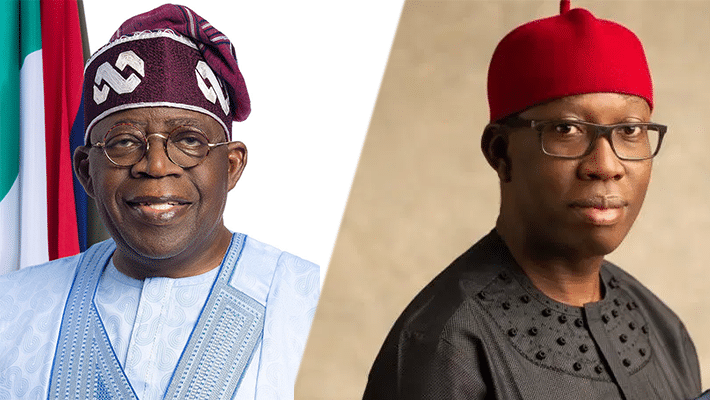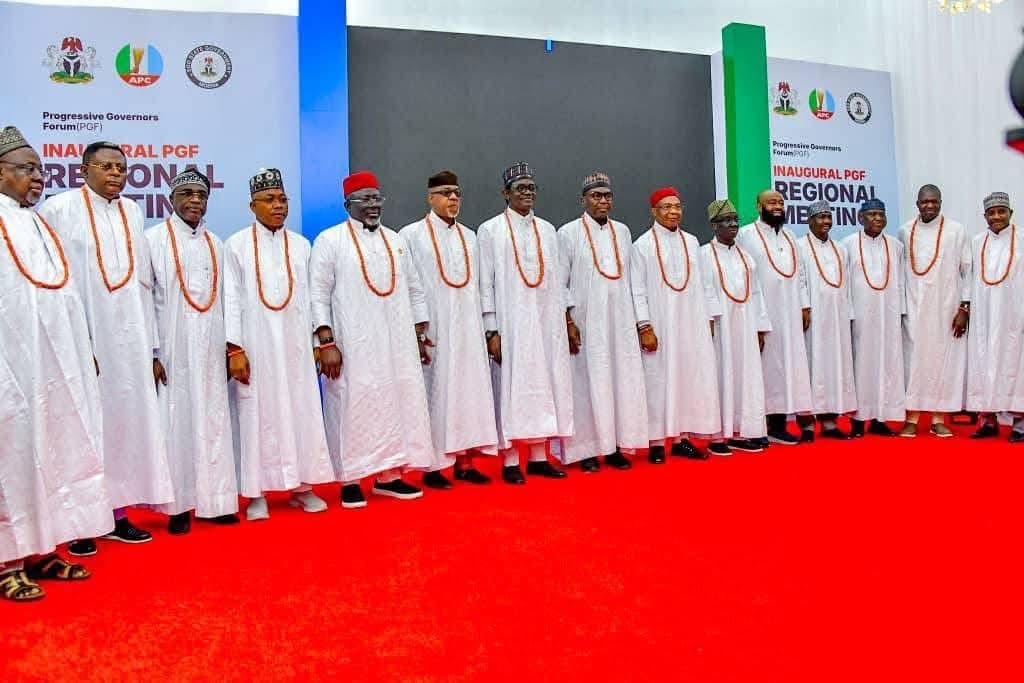Ganduje Resigns as APC Chairman, Dalori Appointed Acting Replacement

Dr. Abdullahi Umar Ganduje has resigned as the National Chairman of Nigeria’s ruling All Progressives Congress (APC), a decision confirmed by the party’s National Publicity Secretary, Felix Morka. While official statements cited "urgent and important personal matters" or "health reasons" for his immediate resignation, multiple sources indicate that Ganduje was compelled to step down due to a complex interplay of political intrigues and mounting internal party pressures.
Ganduje assumed the party's leadership in August 2023, following the resignation of his predecessor, Senator Abdullahi Adamu. His short tenure, estimated at around 22 months, was marked by significant challenges and controversies. Despite the party’s spokesperson praising his efforts in strengthening unity, cohesion, democratic ideals, and electoral competitiveness, as well as overseeing successful defections, his exit aligns with a historical pattern of controversial departures among past APC national chairmen since the party's formation in 2013.
A primary catalyst for Ganduje's abrupt departure appears to be the strategic permutations surrounding the 2027 presidential election and President Bola Ahmed Tinubu's efforts to consolidate political alliances. Reliable sources revealed that Ganduje’s resignation was a precondition for the anticipated return of Senator Rabiu Musa Kwankwaso, leader of the Kwankwasiyya Movement, to the APC. Kwankwaso reportedly demanded Ganduje's removal to assume party leadership in Kano State, and intelligence suggesting Kwankwaso was considering an offer from an opposition coalition may have expedited the decision to replace Ganduje.
Beyond the Kwankwaso factor, Ganduje’s leadership faced sustained opposition from APC stakeholders in the North Central zone. This zone had consistently insisted on retaining the national chairmanship position, as Ganduje's predecessor, Abdullahi Adamu, hailed from there. They felt inadequately represented in the party’s power-sharing arrangement following the 2023 elections. Adamu himself was reportedly forced to resign due to his perceived lack of support for Tinubu during the APC presidential primaries.
Furthermore, allegations of corruption against Ganduje, stemming from a widely publicized 2017 video purportedly showing him receiving dollar bribes, made him a controversial figure and a perceived “bad advertisement” for the ruling party. Despite the Kano State Government's ongoing attempts to prosecute him, federal anti-corruption agencies showed limited interest. His support among state governors and other party leaders also reportedly waned, with some previously backing him only due to perceived presidential preference.
Several incidents further underscored the internal dissent against Ganduje. He faced protests at an APC North-east zonal meeting when he called for President Tinubu's renomination for 2027 without mentioning Vice President Kashim Shettima, who is from that zone. There were also allegations of racketeering in the Federal Capital Territory (FCT) Area Council primary elections, where his National Working Committee (NWC) allegedly favored defecting aspirants. The culmination of these pressures, including a tense meeting with influential party and government officials who demanded his resignation, ultimately led to his capitulation after he was unable to secure an appointment with President Tinubu.
Following Ganduje's resignation, President Tinubu has directed the Deputy National Chairman (North), Hon. Ali Bukar Dalori (from Borno State), to assume the position of Acting National Chairman. This move aligns with the APC’s constitution, which stipulates that the deputy national chairman from the same geographical zone as the chairman shall act in such a vacancy. An emergency meeting of the National Executive Committee (NEC) is being convened to formalize an interim arrangement, pending the election of a substantive chairman, likely at the national convention scheduled for November or December.
Attention has now shifted to the North Central zone for Ganduje's substantive replacement, with prominent figures like Senator Umaru Tanko Al-Makura, Senator George Akume (Secretary to the Government of the Federation), and Senator Mohammed Sani Musa emerging as top contenders. However, analysts note a structural challenge, as sitting APC governors are traditionally recognized as party leaders in their respective states, which may complicate the chances of these non-governor aspirants.
Reactions to Ganduje's exit varied across the political spectrum. Peter Obi, former Labour Party presidential candidate, commended the resignation as an “honourable choice” made for health reasons, urging other public office holders in similar situations to follow suit. Conversely, many within the APC were not surprised by the development, describing it as an expected outcome of mounting internal rifts. Party officials assured faithful members that the APC remains committed to delivering transformative governance under President Tinubu's Renewed Hope Agenda, while extending gratitude to Ganduje for his contributions and wishing him well in future endeavors.












